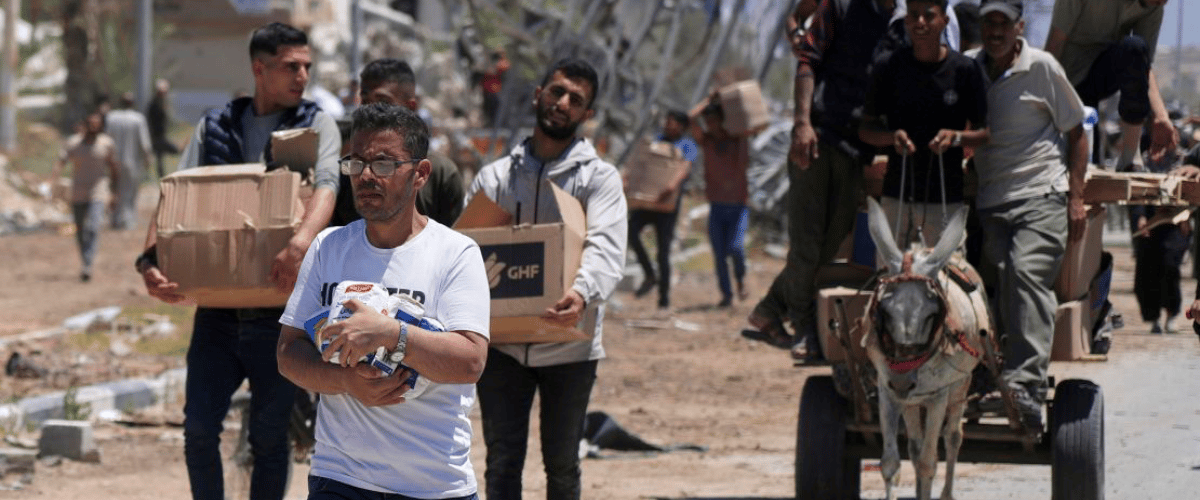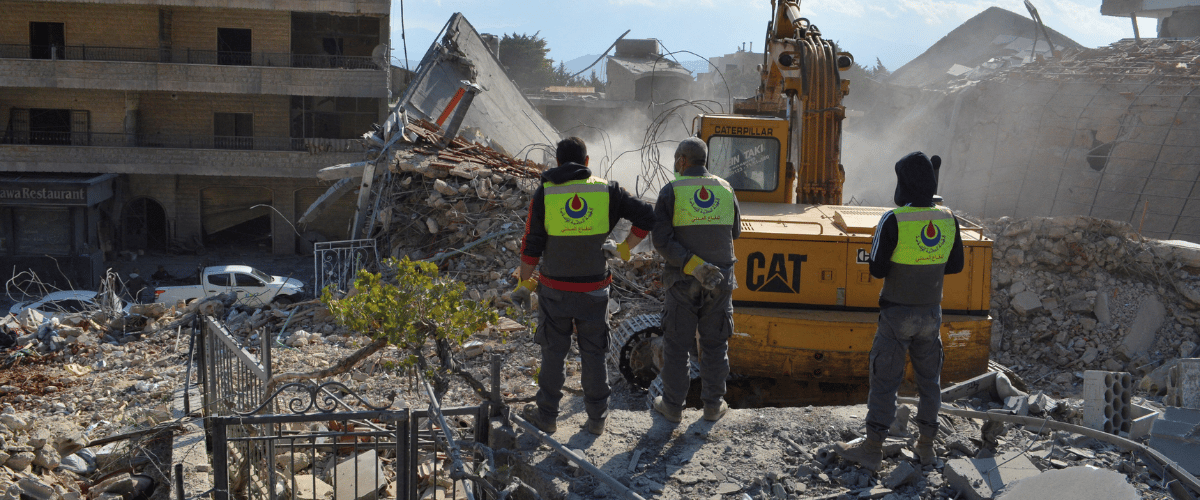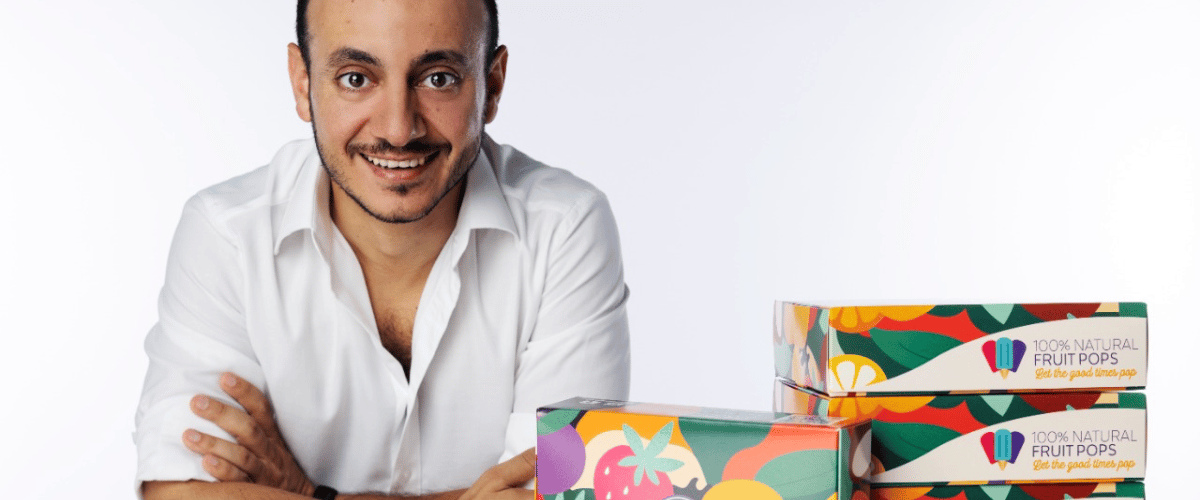- Smashi Business
- Posts
- US Approves $30M for Controversial Aid Group in Gaza; World Bank's $1.3 Billion for Lebanon, Syria and Iraq
US Approves $30M for Controversial Aid Group in Gaza; World Bank's $1.3 Billion for Lebanon, Syria and Iraq

Thursday, June 26, 2025
Happy Thursday everyone!
In a week of high-stakes decisions and brand reckonings, the U.S. has quietly greenlit a $30 million aid package to a controversial Gaza relief group—despite internal opposition and rising civilian casualties at aid sites. Meanwhile, the World Bank is pouring over $1.3 billion into infrastructure recovery across Lebanon, Syria, and Iraq in a bold push to stabilize the war-torn region. And on a different front, House of Pops CEO Mazen Kanaan shared a powerful reminder of brand accountability after a free sugary drink — added without consent — nearly compromised his health-conscious brand.
But before that: For quick daily updates, follow us on Instagram, and you can watch our Smashi Business Show live every weekday from 10AM onwards (UAE time). Also, you can join our Whatsapp channel to receive updates from the business world.
US To Fund Gaza Aid Operation With $30M Despite Internal Concerns And Violence At Distribution Sites

📌 What Is It About
TThe U.S. has approved a $30 million grant to the Gaza Humanitarian Foundation (GHF), a private group delivering food aid in Gaza, despite internal concerns over the operation’s safety and transparency.
This is the first known financial contribution from Washington to the GHF, which had previously received only diplomatic support.
The grant, issued via USAID under a White House and State Department “priority directive”, bypassed typical vetting procedures such as financial audits and extremism checks.
GHF operates with private U.S. logistics and security firms, including a company led by a former CIA officer and another employing U.S. military veterans.
💡 Why It Matters
The aid delivery comes amid rising casualties in Gaza, where over 400 Palestinians have been killed while trying to access food from U.N. and GHF distribution points.
Critics within the U.S. government have raised alarms over violence near aid sites, GHF’s limited experience, and its partnerships with for-profit military contractors.
The foundation’s sites are reportedly set up in militarized zones, increasing the risk of conflict and casualties among desperate civilians.
Despite this, the GHF claims to have delivered 40 million meals and denied any looting of its trucks — a problem plaguing U.N. operations.
🔭 What’s Next
The U.S. may approve monthly grants of $30 million to GHF moving forward, though this depends on political and operational outcomes.
Calls for coordination between GHF and traditional humanitarian agencies are likely to intensify amid criticism and safety concerns.
The GHF has signaled openness to cooperation with the U.N. and others but demands improved security from Israelnear distribution sites.
As scrutiny builds, both the State Department’s exemption process and the role of private firms in aid delivery are expected to face renewed debate in Washington.
Markets
EGX 30 | 33,002.85 | +1.24% |
DFMGI | 5,613.39 | +0.364% |
ADX | 9811.12 | +0.162% |
Tadawul | 10,973.98 | +0.09% |
World Bank Commits Over $1.3 Billion To Rebuild Key Infrastructure In Lebanon, Syria, And Iraq

🟡 What It’s About
The World Bank has approved over $1.3 billion in new funding for infrastructure recovery in three war-affected countries:
$250 million for Lebanon to rebuild damaged public infrastructure and manage rubble.
$146 million for Syria to restore electricity systems battered by 14 years of conflict.
$930 million for Iraq to modernize and extend the country’s rail network.
🔴 Why It Matters
These funds represent critical support for recovery and stabilization in conflict-hit nations, with infrastructure collapse being a major barrier to normal life and economic revival.
Lebanon’s rebuilding needs have grown due to recent conflict escalation and chronic state dysfunction.
Syria’s power grid is in disrepair, affecting millions of civilians and long-term economic recovery.
Iraq’s investment in rail is aimed at job creation, trade facilitation, and reducing reliance on oil revenues — a key Vision 2030 objective.
🔵 What’s Next
Reconstruction in Lebanon and Syria will depend on safe access to affected zones and political will to implement reforms.
Iraq’s rail modernization could connect key trade corridors, enhancing logistics and regional integration.
The World Bank will likely monitor implementation closely, as governance and corruption remain challenges in all three countries.
House Of Pops CEO Highlights Brand Integrity After Ecommerce Partner Adds Sugary Drinks To Orders

📰 What Is It About
Mazen Kanaan, Co-Founder and CEO of House of Pops, shared an incident where an ecommerce partner added sugary drinks to customer orders without informing the brand.
Although the drinks were free, the move sparked backlash, including a negative customer review criticizing the brand’s perceived compromise on its health-first values.
The incident was not about the product itself, but the disconnect between customer expectations and the brand’s wellness positioning.
💡 Why It Matters
House of Pops promotes itself as a clean-label dessert company focused on wellness, and the inclusion of sugary beverages clashed with that identity.
Kanaan emphasized that customers don’t just buy a product—they buy into the brand’s values, making brand consistency across all touchpoints critical.
The episode illustrates how brand trust can be undermined by third-party actions, and how consumers hold brands accountable for the entire experience.
🔭 What’s Next
The company is likely to re-evaluate partnerships and order fulfillment protocols to ensure alignment with its core values.
Kanaan’s post serves as a broader reminder to businesses: values are not just marketing—they are a responsibility.
Brands across sectors may take note, reinforcing the importance of vetting third-party actions to preserve authenticity and consumer trust.
🔍From Smashi Business’ Desk
Dreamers: From selling lashes with her sisters to building a million-dollar fragrance empire — Mona Kattan is reshaping what modern luxury smells like.
🔍In other news…
9 million tourists have visited Dubai already this year
Saudi Sport Ministry signs deals for new hotels at King Abdullah Sports City in Jeddah
UAE Gold Reserves Rise 19.3% To $7.5B In Q1 2025
Sharjah opens its biggest solar power plant
First drone parcel delivery flight takes off in Abu Dhabi
UAE bans bank from accepting new customers for 6 months, fines it Dh3.5 million
Mubadala Capital, T&D said to be cornerstone investors in FWD IPO
